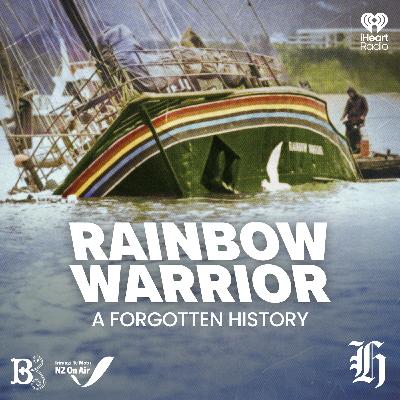The House of Bain - Part Two: I Am Innocent
Description
To mark the 30 year anniversary of the mass killing A Moment In Crime presents The House of Bain, a two-part telling of the case.
On June 20 1994 Margaret and Robin Bain, their teenage daughters Arawa and Laniet and son Stephen were all shot dead in the family home at 65 Every Street, Dunedin.
Just after 7am David Bain - Margaret and Robin's oldest child - called emergency services to report the ghastly scene. He said he had come home from his morning paper run and found them all dead.
Days later Bain was charged with five counts of murder and after a high-profile trial a jury found him guilty.
He maintained his innocence and fought for decades for a retrial, which finally went ahead in 2007.
A second jury acquitted Bain, finding him not guilty of the five murders.
The case is arguably New Zealand's most talked about massacre and over the years has become morbidly iconic.
In the second part of House of Bain, you will hear more from Bain in his own words on his legal battle. The lawyer who represented him most recently also speaks about the case and its aftermath.
Host Anna Leask speaks to people involved in the case and those with expert opinions on why Bain and the grisly event have become embedded in New Zealand culture.
CLICK HERE for further New Zealand Herald coverage of this case
A Moment In Crime is an NZME podcast written and hosted by Anna Leask, senior crime and justice reporter for the New Zealand Herald.
The podcast is written and hosted by Leask. It is produced by Leask, NZME audio engineer James Irwin and podcast production manager Ethan Sills.
A number of key players in the case had their words voiced by actors - Glenn Dwight as David Bain and Tory McArthur as the juror from the second trial. NZME audio engineer Tash Chittock assisted with recording.
In this episode television news reports that featured on various iterations of 6pm news bulletins on TVNZ and NewsHub have been referenced..These are mostly taken from court coverage, which can still be found on YouTube.
If you have a crime or case you’d like to hear more about, email anna.leask@nzme.co.nz
See omnystudio.com/listener for privacy information.







It feels a little incongruous for a member of the jury to refer to "David" on several occasions, whilst also stressing the importance of being dispassionate. Seems like that level of familiarity is the anthesis of being dispassionate and suggests at least a degree of emotional buy-in to a personal narrative?